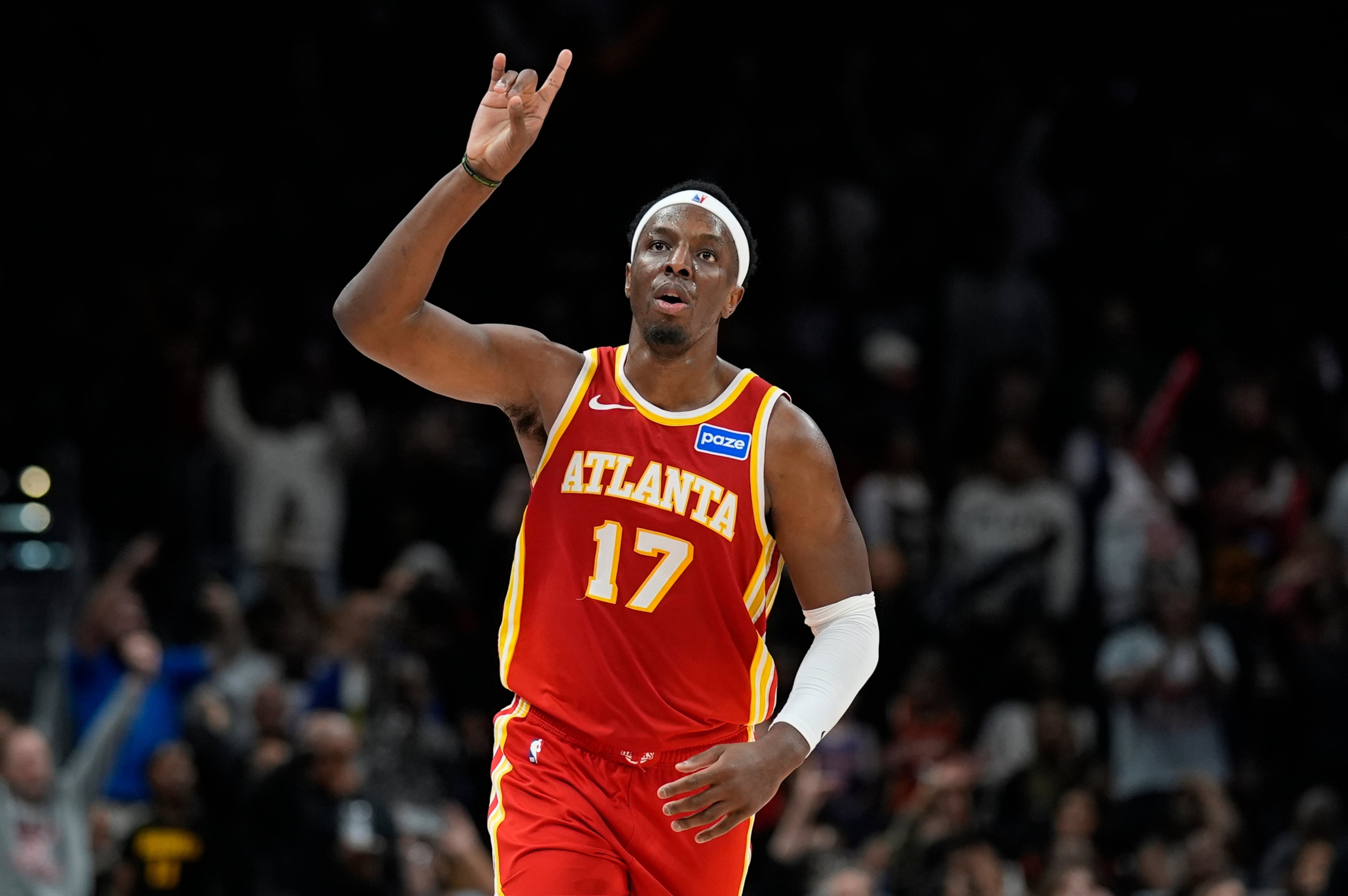‘It meant everything:’ Hawks’ part-time employees grateful for support during NBA hiatus

When Michelle Davis heard that the NBA suspended its season due to coronavirus, anxiety started to set in.
Davis, a supervisor for event security, has worked for the Hawks for about 20 years. She’s a social worker full-time, but with her daughter a freshman at Kennesaw State, that extra income from working home games and events at State Farm Arena allows her to pay for housing, books and other expenses.
How would she make those ends meet, she thought, without that money?
She didn't have to worry too long, as Hawks owner Tony Ressler and CEO Steve Koonin soon made it known they would take care of their part-time employees during the shutdown, continuing to pay them even though games and other events have effectively been canceled since March 11, the day Utah's Rudy Gobert tested positive for coronavirus and everything suddenly changed.
“It meant everything. ... It lifted a weight off of me,” Davis said. “I was thinking, ‘Oh my gosh, what am I going to do?’ It’s just a lot of anxiety thinking, ‘What’s next? Where am I going to get the money from to make sure her life and my life stay as normal as possible?’”
As the country battles this COVID-19 pandemic, trying to social distance, limit its spread, provide more testing and treat the influx of patients, industries from airlines to restaurants are struggling. With all the jobs attached to the NBA, many of which are seasonal and hourly, the suspension of the season was cause for concern. But the Hawks continuing to pay their part-time employees offers some stability at an uncertain time – the policy has been extended through April, for those who had signed up to work home games and concerts.
Several other NBA teams, from the Mavericks to the Lakers and Clippers to the Nets, have announced some kind of plan to help ease the burden on part-time and event workers.
Davis wrote an email to Koonin that Friday night, March 13, to simply say thank you for not forgetting about the part-time staff. She got a response about 30 minutes later, with Koonin writing he would make sure Ressler got the message.
“It speaks volumes, it really does,” Davis said. “And that’s from all of us, my co-workers and everybody. Everybody is super appreciative and happy because it lifts a weight. A lot of us work part time jobs because a lot of us really need that extra income just to maintain our day-to-day.”
The speed of the announcement came as a surprise to Davis. But Ressler and his wife, Jami Gertz, electing to help out the part-time staff didn’t, Davis said, with how personable and accessible the pair are to everyone from cleaning staff to those in concessions to Davis’ crew in security.
For Ressler’s part, there was never any hesitation this was the correct path, he has said.
“We have a pretty clear set of priorities in this kind of remarkable time that we’re living through,” Ressler said when discussing the plan with The Atlanta Journal-Constitution on March 13. “Protecting our fans, protecting our employees, and protecting the reputation of our league, all of which is important, but let there be no confusion, that means taking care of all of our employees, our full-time, our part-time.”
That extra money also comes in handy for people whose other jobs have been paused or eliminated due to coronavirus.
Nayeebah Tisnor, who is in her second season as a guest experience coach at State Farm Arena, was recently furloughed from her full-time position as a fitness coach at Delta’s fitness center, but having that income means she won’t have to rely as much on savings. It’s not required for Ressler and the Hawks to continue paying part-time employees, Tisnor pointed out, but they chose to do so anyway.
“This extra money that probably shouldn’t be coming to me, will still be coming to me, so I’m not worried,” Tisnor said. “I know I’m going to be OK. And that’s just a huge relief.”
Dorothy O’Neal, who has worked for the Hawks part-time since October of 2018, starting out as a guest smile-maker (similar to a greeter) and promoted to a supervisor role in August of 2019, recalled the concern among event staff before they learned they’d still be earning income.
“That night, everybody was like ‘Oh my gosh, what are we going to do? How are we going to get paid?’ O’Neal said. “These are part-time positions, but it has helped a lot of people. ... Tony and his team agreed to pay us within 24 hours.”
Her job with the Hawks is helping her put her two daughters through college, and that continued income also afforded her the opportunity to go home and visit family in Birmingham for the first time this year.
“It is a big help,” O’Neal said. “It gave me a little bit of comfort. It gave me peace of mind to know that they agreed, this was before other organizations and other owners decided to pay their employees, they did this within 24 hours.”



